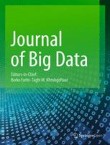
Photo from archive.org
In this paper, we introduce three new implementations of non-native methods for storing RDF data. These methods named RDFSPO, RDFPC and RDFVP, are based respectively on the statement table, property… Click to show full abstract
In this paper, we introduce three new implementations of non-native methods for storing RDF data. These methods named RDFSPO, RDFPC and RDFVP, are based respectively on the statement table, property table and vertical partitioning approaches. As important, we consider the issue of how to select the most relevant strategy for storing the RDF data depending on the dataset characteristics. For this, we investigate the balancing between two performance metrics, including load time and query response time. In this context, we provide an empirical comparative study between on one hand the three proposed methods, and on the other hand the proposed methods versus the existing ones by using various publicly available datasets. Finally, in order to further assess where the statistically significant differences appear between studied methods, we have performed a statistical analysis, based on the non-parametric Friedman test followed by a Nemenyi post-hoc test. The obtained results clearly show that the proposed RDFVP method achieves highly competitive computational performance against other state-of-the-art methods in terms of load time and query response time.
Journal Title: Journal of Big Data
Year Published: 2021
Link to full text (if available)
Share on Social Media: Sign Up to like & get
recommendations!